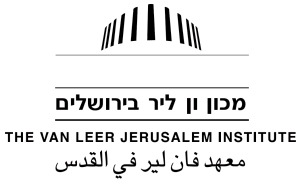How do societies recover from major violence and terrible injustice? How do they cope with collective trauma, perpetrators, guilt, and is there a road to forgiveness?
Professor Ruti Teitel was among the pioneering scholars to probe the complex mechanisms societies use to exorcise the demons of conflict. Transitional justice is now central to understanding conflict and integral to resolution, largely due to her work. Teitel discusses her latest book, and the role of transitional justice in her native Argentina and numerous other countries.
Sponsors
This season of the Tel Aviv Review is made possible by The Van Leer Jerusalem Institute, which promotes humanistic, democratic, and liberal values in the social discourse in Israel.
Tel Aviv Review is also supported by the Public Discourse Grant from the Israel Institute, which is dedicated to strengthening the field of Israel Studies in order to promote knowledge and enhance understanding of modern Israel.











“[some among the Allies wanted to] continue the war–just shoot them.”
–interviewee on the Nuremberg Trials.
—
Some, as the interviewee notes, were acquitted at Nuremberg. One presumes that the evidence drawing charges would have been sufficient for execution or, if sometimes not, that the decisional process would have been fully masked. War lets us all come on board, fully ourselves in others–sometimes an abstract other dipping into present social experience, sometimes a most intimate communality. The rule of law is not as such. If there is an us in the law, it is an us which far outstrips at least me, an us foreign to my lived experience which makes of the mutual alienation of lives an abode for life surpassing our own vistas. The rule of law is not about winning; it coopts winning to other ends. When the law demands too many wins, the abode shrinks. This strange tertiary linkage among people unknown to each other even in label seems to me somehow the essence of humanity. Truth and reconciliation stays full control, sacrificing the win for indistinct future–something war cannot, definitionally, do. Perhaps the war within us is over when and how certainty becomes self consuming.
I greatly admire the Tel Aviv Review for the hope and open perseverance it shows under the unrelenting bombardment of adverse news and media, this interview an exemplar. So long as such people think and say the game shall not be over.